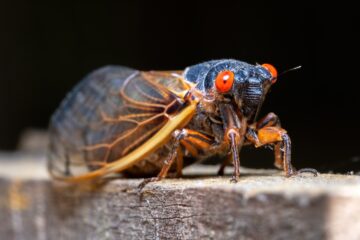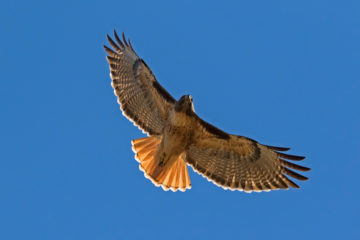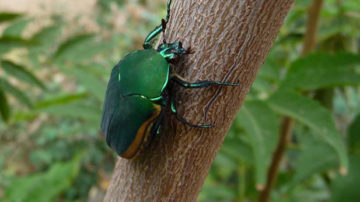by Mark Harvey
“…they came out of little holes in the ground, and did eat up the green things, and made such a constant yelling noise as made the woods ring of them, and ready to deafen the hearers…” —William Bradford, Massachusetts, 1633

If you missed the totality last month when the moon fully obscured the sun and can’t wait until August 23, 2044, for the next total solar eclipse, don’t despair. There are still some very good reasons to rent a strange Airbnb in a strange county you’ve never visited to witness another rare event in nature: the emergence of a trillion cicadas. If you’re inclined to get the best seats for this event, you might want to start looking at flights to Illinois and Iowa, where the bugs will really take over.
For those who don’t follow cicadas, this year we’re seeing what amounts to a Sturgis rally or Woodstock for insects: a hell of a lot of showing off, really loud music, lots of sex, and truly living for the moment. Periodical cicadas, as they’re called, live underground as nymphs for years, and then spend only a few weeks above ground as adults after they’ve emerged to mate. There are two types of periodical cicadas, one which emerges every thirteen years, and one which emerges every seventeen years. What’s exciting this year—if you’re an entomologist—is that two adjacent broods, one from the seventeen-year gang and one from the thirteeners, have synched up so they are both emerging the same year. The last time this happened was in 1803.
This being America, there’s even a clumsy portmanteau to describe making a special trip to hear the insects: cicada-cation. Read more »


